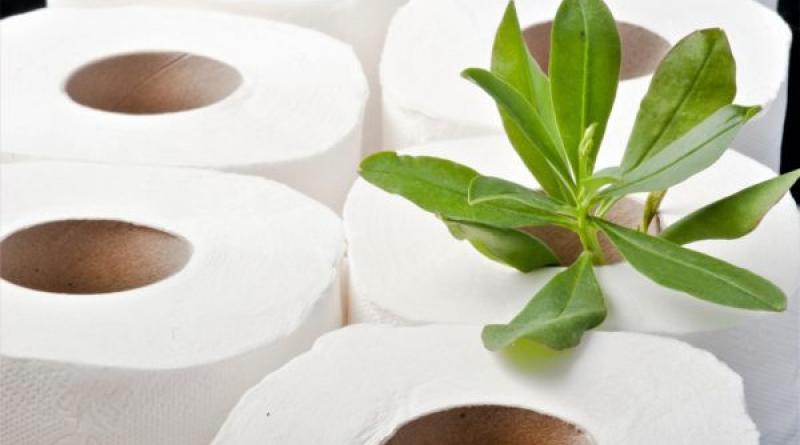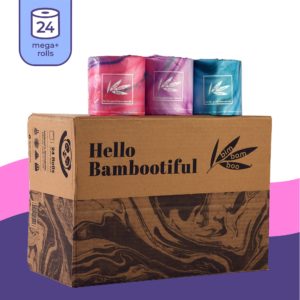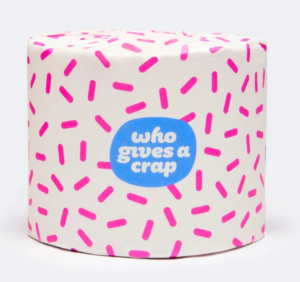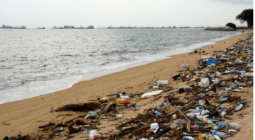Sustainable Toilet Paper: Buying Guide to the Good, Better, and Best.

Making an informed buying decision about sustainable bathroom products, like toilet paper, takes more than a trip to the store. The whole lifecycle of the paper and packaging determines whether your TP reduces your impact on the planet.
Earth911 researched the six sustainable toilet paper companies that publish information about their production, shipping, distribution, and packaging practices or answered our supply chain questions. In addition to these six, we identified many toilet paper manufacturers that use recycled or bamboo-based paper — but do not provide transparency about how their products are made and distributed.
Even if a company uses a source of paper fiber that is renewable, the manufacturing, shipping, and distribution of toilet paper contribute to CO2 emissions that are environmentally harmful. Please review our rating criteria below to learn about the factors considered in these ratings.
The results — displayed below in a printable chart — provide details about the pricing, production and distribution practices, carbon footprint, packaging sustainability, and charitable giving by all the companies in this review.
This article contains affiliate links to products that, if you make a purchase, support Earth911’s editorial mission.
Good: Seventh Generation
Seventh Generation is a big-brand leader in sustainability and touts the most comprehensive set of sustainability certifications among the toilet paper makers we reviewed. But it does not offset its carbon footprint and ships most of its products in a recycled #4 plastic wrapper, which is not widely recyclable and not accepted by any curbside programs, so we can rank its range of recycled toilet paper products as “Good.”
Seventh Generation does offer cardboard packaging for its 60-pack 2-ply recycled toilet paper.
Instead of cutting down trees to make its toilet paper, Seventh Generation sources its paper fibers from recycled post-consumer paper. It has eliminated all animal testing and has achieved a 95% bio-based product catalog. We are very impressed with Seventh Generation’s commitment to analyzing its supply chain to eliminate CO2 emissions and become a net-zero company by 2030. However, it did not quite make its 2020 goal to disclose all the steps in its supply chain. Compared to 2016, its CO2 emissions rose by 2.6% last year.
Seventh Generation reports emitting 3.9 tons of CO2 per $1,000 of sales across all its product lines. We hope that when the company publishes its supply chain reporting it will break out the carbon footprint of each product line and individual products to help shoppers find the lowest-impact option.
Better: Bim Bam Boo
Bim Bam Boo, a woman-founded U.S. bamboo toilet paper maker, is a better option than the rest of the pack because it delivers a plastic-free product that features bamboo roll cores. Its colorful wrappers are attractive and recyclable and the toilet paper is chlorine-free. Bim Bam Boo products are available online at Amazon.com and select retail locations. But it does not currently offset CO2 emissions from its manufacturing, ocean shipping, and U.S. distribution network.
Bim Bam Boo planned its supply chain to reduce the movement of materials during the production process. For example, it grows bamboo on a plantation located next to its manufacturing plant in China and the U.S. distribution centers are near its primary retail markets. The company selected a distribution partner, United Natural Foods, Inc., that has committed to reducing its CO2 emissions based on the Paris Accord guidelines. Bim Bam Boo’s pricing for its 12- and 24-roll packages falls in the middle of the pack at $0.005 and $0.004 per sheet, respectively.
The social commitment reported by Bim Bam Book focuses on empowering black- and brown-led companies, which get 80% of the company’s partner business. It also contributes 15% of its profits for 8 days of the year to local businesses.

Best: Who Gives A Crap
One clear leader stands out from the toilet paper crowd: Who Gives A Crap, an Australian company that makes toilet paper from bamboo and recycled post-consumer paper. Who Gives A Crap offsets carbon emissions from each step of their supply chain. This does not mean that the product does not produce CO2, but unlike every competitor we examined, Who Gives a Crap makes a genuine effort to clean up its carbon footprint. It sells directly to consumers from its website; Who Gives A Crap does not distribute through Amazon or other e-commerce sites.
We are also impressed with Who Gives A Crap’s plastic-free packaging. Its rolls arrive in a cardboard box without any plastic tape. Individual rolls are wrapped in colorful paper that makes them part of the decor of a bathroom before they are put to use. It sources recycled papers from Chinese schools near its production facility in Sichuan Province, China.
The company also makes a meaningful contribution to the world, dedicating half of its profits to build toilets in low-income countries through partnerships with nonprofits. It is a Certified B Corporation, a designation that requires the firm to operate transparently with outcomes that benefit all stakeholders in the business, including the communities in which it operates. B Corps address social justice, equity, and diversity issues, as well as minimize their environmental impacts.
Who Gives A Crap also delivers the best value among any of the toilet papers we reviewed. Both the 3-ply bamboo and recycled paper options are the least expensive on a cost-per-sheet basis than competitors’ offerings. The 48-roll packages cost only $0.002 per sheet; the 24-roll options cost $0.003 per sheet.
Who Gives A Crap does not tout any U.S. market sustainability certifications but did claim a Chinese certification, the Business Social Compliance Alliance, about which no information is available on the web (see below). This lack of transparent certification was the only shortcoming we identified with Who Gives A Crap. If the company achieves zero emissions in the future, it could be the perfect sustainable toilet paper. But, for now, it’s way out front in the race to make a TP you can use without environmental concerns.

Comparison Chart
To view our complete printable comparison chart, click the image below.
Our Rating Criteria
The factors we considered when assessing the environmental-friendliness and sustainability include the following keystones.
Company Supply Chain
The length of the company supply chain describes the distance materials are shipped before and after the mattress is manufactured.
Carbon Emissions Offsets
A second supply chain consideration is whether the toilet paper maker offsets their shipping and manufacturing carbon emissions with carbon credits or carbon sequestration programs, such as reforestation. Only Who Gives A Crap actively offsets its emissions, but Seventh Generation is working to become a net-zero company across all its products by 2030.
Recyclable Materials
Toilet paper is made with paper fibers that are not conducive to recycling, even when the TP is not used for its primary purpose. Recycled toilet paper, which contains even shorter fibers than TP produced using virgin wood or bamboo, is not suitable for reuse.
Recyclable Packaging Materials
The recyclability of packaging is an important consideration. Look for cardboard packaging, which is convenient to recycle, instead of #4 plastic film that wraps the rolls.
Charity and Giving
Charity and giving programs are another important feature of a responsible company. Shoppers also want to know that their spending is supporting ethical business practices, which often involve extensive charitable giving.
Company Philosophy
Company philosophies are important in understanding what you are buying. We’ll include these in the discussion of individual companies in the rankings.
Certifications: Safety First
Certifications are essential guidelines for shoppers. Here are the certifications claimed by the companies in this report:
- Forest Stewardship Council (FSC) Certified: An assurance that product materials are sourced from responsibly managed forests “that provide environmental, social, and economic benefits.” The FSC tracks the entire supply chain and provides a set of criteria for responsible forestry that preserves biodiversity. It does not guarantee that a product is free of virgin wood fiber.
- ISO 14001 Environment Management: The International Organization for Standardization provides guidelines for responsible management of a company’s environmental responsibility. It does not apply specifically to paper production, instead, ISO 14001 is a framework for measuring environmental performance that does not guarantee a product is better for the planet.
- Oregon Tilth Certified Organic (OCTO): The Oregon Tilth certification addresses how agricultural products are grown and processed. It is an assurance that a product is “biologically sound and socially equitable.” The organization also participates in USDA National Organic Program certifications.
- USDA Certified Biobased Products (includes percentage ratings): This U.S. Department of Agriculture program provides information about the biobased content of a product as a percentage of the total content of the product and is used to guide U.S. government purchasing. It was renamed in 2020 and may be referred to as the BioPreferred Progam in new packaging.
- Not Tested On Animals Certified: This is a privately managed certification and the phrase on packaging may not be valid. People for the Ethical Treatment of Animals is a reliable source of “not tested on animals” claims. Visit PETA’s database.
- CleanWell Certified: CleanWell Botanical Disinfectant Wipes and Sprays are made with a plant-derived active ingredient, Thymol, a proprietary formula proven to kill 99.9% of household germs and viruses. The certification confirms that the product uses Thymol, which is certified as a “not tested on animals” product by PETA.
- Rainforest Alliance Certified: The Rainforest Alliance is a non-governmental organization that certifies responsible forestry and agricultural practices for materials used in toilet paper, among other tree- or plant-based products. It does not guarantee that a product is free of virgin wood fiber.
- Roundtable on Sustainable Palm Oil (RSPO) Certified: A global standard, the RSPO certification confirms that a product does not use unsustainably grown palm oil, one of the most common ingredients in food and personal care products.
- Elemental Chlorine-Free: This phrase refers to a paper bleaching technique that does not rely on chlorine, an element that is harmful to the environment, humans, animals, and aquatic life.
- Business Social Compliance Alliance (China): Claimed by Australia-based Who Gives A Crap, the “Business Social Compliance Alliance” does not appear as a certification within a variety of English-language web searches.
- Korea Evaluation Institute of Industrial Technology
- Certified B Corporation: This certification recognizes “businesses that meet the highest standards of verified social and environmental performance, public transparency, and legal accountability to balance profit and purpose.”
22 February 2021
Earth 911




